Piano Sheet Music
 "It was Elvis who really got me hooked on beat music. When I heard "Heartbreak Hotel" I thought, this is it." Paul McCartney
"It was Elvis who really got me hooked on beat music. When I heard "Heartbreak Hotel" I thought, this is it." Paul McCartney
Ravel

Joseph-Maurice Ravel (March 7, 1875 – December 28, 1937) was a French composer of Impressionist music known especially for his melodies, orchestral and instrumental textures and effects. Much of his piano music, chamber music, vocal music and orchestral music has entered the standard concert repertoire.
Ravel's piano compositions, such as Jeux d'eau, Miroirs and Gaspard de la Nuit, demand considerable virtuosity from the performer, and his orchestral music, including Daphnis et Chloé and his arrangement of Modest Mussorgsky's Pictures at an Exhibition, uses a variety of sound and instrumentation very effectively.
Ravel is perhaps known best for his orchestral work, Boléro (1928), which he considered trivial and once described as "a piece for orchestra without music."
According to SACEM, Ravel's estate earns more royalties than that of any other French musician. According to international copyright law, Ravel's works are public domain since January 1, 2008 in most countries. In France, due to anomalous copyright law extensions to account for the two world wars, they will not enter the public domain until 2015.
Ravel's piano compositions, such as Jeux d'eau, Miroirs and Gaspard de la Nuit, demand considerable virtuosity from the performer, and his orchestral music, including Daphnis et Chloé and his arrangement of Modest Mussorgsky's Pictures at an Exhibition, uses a variety of sound and instrumentation very effectively.
Ravel is perhaps known best for his orchestral work, Boléro (1928), which he considered trivial and once described as "a piece for orchestra without music."
According to SACEM, Ravel's estate earns more royalties than that of any other French musician. According to international copyright law, Ravel's works are public domain since January 1, 2008 in most countries. In France, due to anomalous copyright law extensions to account for the two world wars, they will not enter the public domain until 2015.
York Bowen
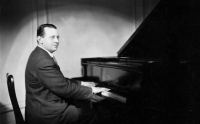
Edwin York Bowen (22 February 1884 – 23 November 1961) was an English composer and pianist. Bowen's musical career spanned more than fifty years during which time he wrote over 160 works. As well as being a pianist and composer, Bowen was a talented conductor, organist, violist and horn player. Despite achieving considerable success during his lifetime, many of the composer's works remained unpublished and unperformed until after his death in 1961. Bowen's compositional style is widely considered as ‘Romantic’ and his works are often characterized by their rich harmonic language. He was one of the most notable English composers of piano music of his time.
Traditional

Guiseppe Verdi

Giuseppe Fortunino Francesco Verdi (Italian pronunciation: ; 10 October 1813 – 27 January 1901) was an Italian Romantic composer, mainly of opera. He was one of the most influential composers of the 19th century. His works are frequently performed in opera houses throughout the world and, transcending the boundaries of the genre, some of his themes have long since taken root in popular culture - such as "La donna è mobile" from Rigoletto, "Va, pensiero" (The Chorus of the Hebrew Slaves) from Nabucco, "Libiamo ne' lieti calici" (The Drinking Song) from La traviata and the "Grand March" from Aida. Although his work was sometimes criticized for using a generally diatonic rather than a chromatic musical idiom and having a tendency toward melodrama, Verdi’s masterworks dominate the standard repertoire a century and a half after their composition.
Verdi's predecessors who influenced his music were Rossini, Bellini, Giacomo Meyerbeer and, most notably, Gaetano Donizetti and Saverio Mercadante. With the exception of Otello and Aida, he was free of Wagner's influence. Although respectful of Gounod, Verdi was careful not to learn anything from the Frenchman whom many of Verdi's contemporaries regarded as the greatest living composer. Some strains in Aida suggest at least a superficial familiarity with the works of the Russian composer Mikhail Glinka, whom Franz Liszt, after his tour of the Russian Empire as a pianist, popularized in Western Europe.
Throughout his career, Verdi rarely utilised the high C in his tenor arias, citing the fact that the opportunity to sing that particular note in front of an audience distracts the performer before and after the note appears. However, he did provide high Cs to Duprez in Jérusalem and to Tamberlick in the original version of La forza del destino. The high C often heard in the aria Di quella pira does not appear in Verdi's score.
Verdi's predecessors who influenced his music were Rossini, Bellini, Giacomo Meyerbeer and, most notably, Gaetano Donizetti and Saverio Mercadante. With the exception of Otello and Aida, he was free of Wagner's influence. Although respectful of Gounod, Verdi was careful not to learn anything from the Frenchman whom many of Verdi's contemporaries regarded as the greatest living composer. Some strains in Aida suggest at least a superficial familiarity with the works of the Russian composer Mikhail Glinka, whom Franz Liszt, after his tour of the Russian Empire as a pianist, popularized in Western Europe.
Throughout his career, Verdi rarely utilised the high C in his tenor arias, citing the fact that the opportunity to sing that particular note in front of an audience distracts the performer before and after the note appears. However, he did provide high Cs to Duprez in Jérusalem and to Tamberlick in the original version of La forza del destino. The high C often heard in the aria Di quella pira does not appear in Verdi's score.
Schumann

Robert Schumann, sometimes given as Robert Alexander Schumann, (June 8, 1810 – July 29, 1856) was a German composer, aesthete and influential music critic. He is one of the most famous Romantic composers of the 19th century.
He had hoped to pursue a career as a virtuoso pianist, having been assured by his teacher Friedrich Wieck that he could become the finest pianist in Europe after only a few years of study with him. However, a hand injury prevented those hopes from being realized, and he decided to focus his musical energies on composition. Schumann's published compositions were, until 1840, all for the piano; he later composed works for piano and orchestra, many lieder (songs for voice and piano), four symphonies, an opera, and other orchestral, choral and chamber works. His writings about music appeared mostly in the Neue Zeitschrift für Musik ("The New Journal for Music"), a Leipzig-based publication that he jointly founded.
In 1840, after a long and acrimonious legal battle with his piano instructor Friedrich Wieck, Schumann married Wieck's daughter, pianist Clara Wieck, a considerable figure of the Romantic period in her own right. Clara Wieck showcased many works by her husband as well. For the last two years of his life, after an attempted suicide, Schumann was confined to a mental institution.
He had hoped to pursue a career as a virtuoso pianist, having been assured by his teacher Friedrich Wieck that he could become the finest pianist in Europe after only a few years of study with him. However, a hand injury prevented those hopes from being realized, and he decided to focus his musical energies on composition. Schumann's published compositions were, until 1840, all for the piano; he later composed works for piano and orchestra, many lieder (songs for voice and piano), four symphonies, an opera, and other orchestral, choral and chamber works. His writings about music appeared mostly in the Neue Zeitschrift für Musik ("The New Journal for Music"), a Leipzig-based publication that he jointly founded.
In 1840, after a long and acrimonious legal battle with his piano instructor Friedrich Wieck, Schumann married Wieck's daughter, pianist Clara Wieck, a considerable figure of the Romantic period in her own right. Clara Wieck showcased many works by her husband as well. For the last two years of his life, after an attempted suicide, Schumann was confined to a mental institution.
Chopin

Frédéric Chopin (1 March 1810 – 17 October 1849) was a Polish composer and virtuoso pianist of the Romantic period. He is widely regarded as the greatest Polish composer, and ranks as one of music's greatest tone poets.
He was born in the village of Żelazowa Wola, in the Duchy of Warsaw, to a Polish mother and French-expatriate father, and in his early life was regarded as a child-prodigy pianist. In November 1830, at the age of 20, Chopin went abroad; following the suppression of the Polish November Uprising of 1830–31, he became one of many expatriates of the Polish "Great Emigration."
In Paris, he made a comfortable living as a composer and piano teacher, while giving few public performances. A Polish patriot,
Chopin's extant compositions were written primarily for the piano as a solo instrument. Though technically demanding, Chopin's style emphasizes nuance and expressive depth rather than virtuosity. Chopin invented musical forms such as the ballade and was responsible for major innovations in forms such as the piano sonata, waltz, nocturne, étude, impromptu and prelude. His works are mainstays of Romanticism in 19th-century classical music.
He was born in the village of Żelazowa Wola, in the Duchy of Warsaw, to a Polish mother and French-expatriate father, and in his early life was regarded as a child-prodigy pianist. In November 1830, at the age of 20, Chopin went abroad; following the suppression of the Polish November Uprising of 1830–31, he became one of many expatriates of the Polish "Great Emigration."
In Paris, he made a comfortable living as a composer and piano teacher, while giving few public performances. A Polish patriot,
Chopin's extant compositions were written primarily for the piano as a solo instrument. Though technically demanding, Chopin's style emphasizes nuance and expressive depth rather than virtuosity. Chopin invented musical forms such as the ballade and was responsible for major innovations in forms such as the piano sonata, waltz, nocturne, étude, impromptu and prelude. His works are mainstays of Romanticism in 19th-century classical music.
Evanescence

Evanescence is an American rock band founded in Little Rock, Arkansas in 1995 by singer/pianist Amy Lee and guitarist Ben Moody.
After recording two private EPs and a demo CD named Origin, with the help of Bigwig Enterprises in 2000, the band released their first full-length album, Fallen, on Wind-up Records in 2003. Fallen sold more than 15 million copies worldwide and helped the band win two Grammy Awards. A year later, Evanescence released their first live album, Anywhere but Home, which sold more than one million copies worldwide. In 2006, the band released their second studio album, The Open Door, which has sold more than four million copies.
The band has suffered several line-up changes, including co-founder Moody leaving in 2003, followed by guitarist John LeCompt and drummer Rocky Gray in 2007. Lee is now the only original member of Evanescence remaining in the band.
After recording two private EPs and a demo CD named Origin, with the help of Bigwig Enterprises in 2000, the band released their first full-length album, Fallen, on Wind-up Records in 2003. Fallen sold more than 15 million copies worldwide and helped the band win two Grammy Awards. A year later, Evanescence released their first live album, Anywhere but Home, which sold more than one million copies worldwide. In 2006, the band released their second studio album, The Open Door, which has sold more than four million copies.
The band has suffered several line-up changes, including co-founder Moody leaving in 2003, followed by guitarist John LeCompt and drummer Rocky Gray in 2007. Lee is now the only original member of Evanescence remaining in the band.
James Horner

James Roy Horner (born August 14, 1953) is an award winning American composer, orchestrator and conductor of orchestral and film music. He is noted for the integration of choral and electronic elements in many of his film scores, and for frequent use of Celtic musical elements.
In a career that spans over three decades, Horner has composed several of Hollywood's most famous film scores. He is probably best known for his critically acclaimed works on the 1997 film Titanic, which remains today the best selling film soundtrack of all time. Other popular works include Braveheart, Apollo 13, The Mask of Zorro, and The Legend of Zorro.
Horner is a two time Academy Award winner, and has received a total of 11 nominations. He has won numerous other awards, including the Golden Globe Award and the Grammy Award.
In a career that spans over three decades, Horner has composed several of Hollywood's most famous film scores. He is probably best known for his critically acclaimed works on the 1997 film Titanic, which remains today the best selling film soundtrack of all time. Other popular works include Braveheart, Apollo 13, The Mask of Zorro, and The Legend of Zorro.
Horner is a two time Academy Award winner, and has received a total of 11 nominations. He has won numerous other awards, including the Golden Globe Award and the Grammy Award.
Naruto

Naruto is an ongoing Japanese manga series written and illustrated by Masashi Kishimoto with an anime adaptation. The plot tells the story of Naruto Uzumaki, a loud, hyperactive, unpredictable, adolescent ninja who constantly searches for recognition and aspires to become a Hokage, the ninja in his village that is acknowledged as the leader and the strongest of all. The series is based on a one-shot that Kishimoto first authored in the August 1997 issue of Akamaru Jump.
The manga was first published by Shueisha in 1999 in the 43rd issue of Japan's Weekly Shōnen Jump magazine and it is still being released with forty-four volumes. The manga would be later adapted into an anime produced by Studio Pierrot and Aniplex. It premiered across Japan on the terrestrial TV Tokyo network and the anime satellite television network Animax on October 3, 2002. The first series lasted nine seasons, while Naruto: Shippūden, a sequel of the series, began its first on February 15, 2007 and is still airing.
The manga was first published by Shueisha in 1999 in the 43rd issue of Japan's Weekly Shōnen Jump magazine and it is still being released with forty-four volumes. The manga would be later adapted into an anime produced by Studio Pierrot and Aniplex. It premiered across Japan on the terrestrial TV Tokyo network and the anime satellite television network Animax on October 3, 2002. The first series lasted nine seasons, while Naruto: Shippūden, a sequel of the series, began its first on February 15, 2007 and is still airing.
Klaus Badelt

Klaus Badelt (born 1968) is a German composer, best known for composing film scores.
Badelt was born in Frankfurt, Germany. He started his musical career composing for many successful movies and commercials in his homeland. In 1998, Oscar-winning film composer Hans Zimmer invited Badelt to work at Media Ventures in Santa Monica, his studio co-owned by Jay Rifkin. Since then, Badelt has been working on a number of his own film and television projects such as The Time Machine and K-19: The Widowmaker. He has also collaborated with other Media Ventures composers, such as Harry Gregson-Williams, John Powell, and Zimmer.
While collaborating with Zimmer, Badelt has contributed to the Oscar-nominated scores for The Thin Red Line and The Prince of Egypt, as well as writing music for many well known directors including Ridley Scott, Tony Scott, Terrence Mallick, John Woo, Kathryn Bigelow, Jeffrey Katzenberg, Tom Cruise, Sean Penn, Gore Verbinski, and Steven Spielberg.
Badelt co-produced the score to Hollywood box office hit Gladiator, directed by Ridley Scott, as well as writing portions of the score with singer/composer Lisa Gerrard. Having contributed music to Gladiator, Mission: Impossible 2 and Michael Kamen's score for X-Men, Badelt was involved in the three most successful movies in 2000. Badelt also collaborated with Zimmer on other successful films, such as The Pledge, and 2001 blockbusters Hannibal and Pearl Harbor. One of his more famous - and more popular - scores is the score to the 2003 film Pirates of the Caribbean: The Curse of the Black Pearl.
Among Badelt's most critically celebrated scores are the Chinese fantasy film The Promise and Dreamworks' remake of The Time Machine, the latter which earned him the Discovery of the Year Award at the World Soundtrack Awards 2003.
Badelt was born in Frankfurt, Germany. He started his musical career composing for many successful movies and commercials in his homeland. In 1998, Oscar-winning film composer Hans Zimmer invited Badelt to work at Media Ventures in Santa Monica, his studio co-owned by Jay Rifkin. Since then, Badelt has been working on a number of his own film and television projects such as The Time Machine and K-19: The Widowmaker. He has also collaborated with other Media Ventures composers, such as Harry Gregson-Williams, John Powell, and Zimmer.
While collaborating with Zimmer, Badelt has contributed to the Oscar-nominated scores for The Thin Red Line and The Prince of Egypt, as well as writing music for many well known directors including Ridley Scott, Tony Scott, Terrence Mallick, John Woo, Kathryn Bigelow, Jeffrey Katzenberg, Tom Cruise, Sean Penn, Gore Verbinski, and Steven Spielberg.
Badelt co-produced the score to Hollywood box office hit Gladiator, directed by Ridley Scott, as well as writing portions of the score with singer/composer Lisa Gerrard. Having contributed music to Gladiator, Mission: Impossible 2 and Michael Kamen's score for X-Men, Badelt was involved in the three most successful movies in 2000. Badelt also collaborated with Zimmer on other successful films, such as The Pledge, and 2001 blockbusters Hannibal and Pearl Harbor. One of his more famous - and more popular - scores is the score to the 2003 film Pirates of the Caribbean: The Curse of the Black Pearl.
Among Badelt's most critically celebrated scores are the Chinese fantasy film The Promise and Dreamworks' remake of The Time Machine, the latter which earned him the Discovery of the Year Award at the World Soundtrack Awards 2003.
George Gershwin

George Gershwin (September 26, 1898 – July 11, 1937) was an American composer. He wrote most of his vocal and theatrical works in collaboration with his elder brother, lyricist Ira Gershwin. George Gershwin composed songs both for Broadway and for the classical concert hall. He also wrote popular songs with success.
Many of his compositions have been used on television and in numerous films, and many became jazz standards. The jazz singer Ella Fitzgerald recorded many of the Gershwins' songs on her 1959 Gershwin Songbook (arranged by Nelson Riddle). Countless singers and musicians have recorded Gershwin songs, including Fred Astaire, Louis Armstrong, Al Jolson, Bobby Darin, Art Tatum, Bing Crosby, Janis Joplin, John Coltrane, Frank Sinatra, Billie Holiday, Sam Cooke, Miles Davis, Herbie Hancock, Madonna, Judy Garland, Julie Andrews, Barbra Streisand, Marni Nixon, Natalie Cole, Patti Austin, Nina Simone, Maureen McGovern, John Fahey, The Residents, Than & Sam, Sublime, and Sting. A residential building is named after him on the Stony Brook University campus.
Many of his compositions have been used on television and in numerous films, and many became jazz standards. The jazz singer Ella Fitzgerald recorded many of the Gershwins' songs on her 1959 Gershwin Songbook (arranged by Nelson Riddle). Countless singers and musicians have recorded Gershwin songs, including Fred Astaire, Louis Armstrong, Al Jolson, Bobby Darin, Art Tatum, Bing Crosby, Janis Joplin, John Coltrane, Frank Sinatra, Billie Holiday, Sam Cooke, Miles Davis, Herbie Hancock, Madonna, Judy Garland, Julie Andrews, Barbra Streisand, Marni Nixon, Natalie Cole, Patti Austin, Nina Simone, Maureen McGovern, John Fahey, The Residents, Than & Sam, Sublime, and Sting. A residential building is named after him on the Stony Brook University campus.
John Lennon
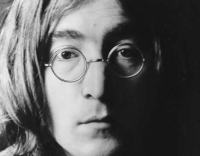
John Winston Ono Lennon, MBE (born John Winston Lennon; October 9, 1940 – December 8, 1980) was an English rock musician, singer, songwriter, artist, and peace activist who gained worldwide fame as one of the founding members of The Beatles. As a member of the group, Lennon was one of the lead vocalists and co-wrote many of the band's songs with Paul McCartney.
In his solo career, Lennon wrote and recorded songs such as "Give Peace a Chance" and "Imagine". Lennon revealed his rebellious nature and wit on television, in films such as A Hard Day's Night, in books such as In His Own Write, and in press conferences and interviews. He was controversial through his work as a peace activist, artist, and author.
Lennon had two sons: Julian Lennon, with his first wife Cynthia Lennon, and Sean Ono Lennon, with his second wife, avant-garde artist Yoko Ono. After a self-imposed retirement from 1976 to 1980, Lennon reemerged with a comeback album, but was murdered one month later in New York City on 8 December 1980. In 2002, respondents to a BBC poll on the 100 Greatest Britons voted Lennon into eighth place. In 2004, Rolling Stone magazine ranked Lennon number 38 on its list of "The Immortals: The Fifty Greatest Artists of All Time" and ranked The Beatles at number one.
In his solo career, Lennon wrote and recorded songs such as "Give Peace a Chance" and "Imagine". Lennon revealed his rebellious nature and wit on television, in films such as A Hard Day's Night, in books such as In His Own Write, and in press conferences and interviews. He was controversial through his work as a peace activist, artist, and author.
Lennon had two sons: Julian Lennon, with his first wife Cynthia Lennon, and Sean Ono Lennon, with his second wife, avant-garde artist Yoko Ono. After a self-imposed retirement from 1976 to 1980, Lennon reemerged with a comeback album, but was murdered one month later in New York City on 8 December 1980. In 2002, respondents to a BBC poll on the 100 Greatest Britons voted Lennon into eighth place. In 2004, Rolling Stone magazine ranked Lennon number 38 on its list of "The Immortals: The Fifty Greatest Artists of All Time" and ranked The Beatles at number one.
Pink Floyd
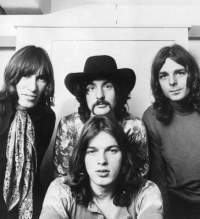
Pink Floyd are an English rock band from Cambridge. The band initially earned recognition for their psychedelic and space rock music, and, as they evolved, for their progressive rock music. Pink Floyd are known for philosophical lyrics, sonic experimentation, innovative album cover art, and elaborate live shows. One of rock music's most successful acts, the group have sold over 200 million albums worldwide including 74.5 million albums in the United States alone. Pink Floyd have influenced progressive rock artists of the 1970s such as Genesis and Yes; and contemporary artists such as Nine Inch Nails and Dream Theater.
Pink Floyd had moderate mainstream success and were one of the most popular bands in the London underground music scene in the late 1960s as a psychedelic band led by Syd Barrett. However, Barrett's erratic behaviour eventually forced his colleagues to replace him with guitarist and singer David Gilmour. After Barrett's departure, singer and bass player Roger Waters gradually became the dominant and driving force in the group by the late-1970s, until his eventual departure from the group in 1985. The band recorded several albums, achieving worldwide success with The Dark Side of the Moon (1973), Wish You Were Here (1975), Animals (1977), and The Wall (1979).
In 1985, Waters declared Pink Floyd "a spent force", but the remaining members, led by Gilmour, continued recording and touring under the name Pink Floyd. Waters sued them for the name and eventually they reached a settlement out of court, under which Gilmour, Mason and Wright would continue as Pink Floyd. They again enjoyed worldwide success with A Momentary Lapse of Reason (1987) and The Division Bell (1994). Waters performed with the band for the first time in 24 years on 2 July 2005 at the London Live 8 concert.
Pink Floyd had moderate mainstream success and were one of the most popular bands in the London underground music scene in the late 1960s as a psychedelic band led by Syd Barrett. However, Barrett's erratic behaviour eventually forced his colleagues to replace him with guitarist and singer David Gilmour. After Barrett's departure, singer and bass player Roger Waters gradually became the dominant and driving force in the group by the late-1970s, until his eventual departure from the group in 1985. The band recorded several albums, achieving worldwide success with The Dark Side of the Moon (1973), Wish You Were Here (1975), Animals (1977), and The Wall (1979).
In 1985, Waters declared Pink Floyd "a spent force", but the remaining members, led by Gilmour, continued recording and touring under the name Pink Floyd. Waters sued them for the name and eventually they reached a settlement out of court, under which Gilmour, Mason and Wright would continue as Pink Floyd. They again enjoyed worldwide success with A Momentary Lapse of Reason (1987) and The Division Bell (1994). Waters performed with the band for the first time in 24 years on 2 July 2005 at the London Live 8 concert.
Erroll Garner
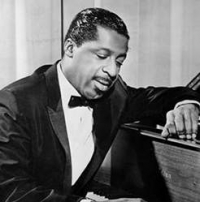
Erroll Louis Garner (June 15, 1921 – January 2, 1977) was an American jazz pianist and composer whose distinctive and melodic style brought him both popular acclaim and the admiration of peers. Of note, Garner was never able to read or write sheet music.
What makes Garner's playing easy to recognize is his trademark introductions, which seem to make no sense until breaking dramatically into his exposition of the tune he will play, and the guitar strumming sound of his left hand, playing crotchet accompaniment to his rich sounding right hand. He places his chords and octaves on syncopated beats that swing very hard and can be used to build excellent tension, such as between phrases. The approach also suggests he was influenced by the iconic rhythm guitar work of Count Basie's long time guitarist, Freddie Green. But discerning listeners could find that while his even four left hand was a fixture, it was far from being the only rhythmic approach he took to playing.
What makes Garner's playing easy to recognize is his trademark introductions, which seem to make no sense until breaking dramatically into his exposition of the tune he will play, and the guitar strumming sound of his left hand, playing crotchet accompaniment to his rich sounding right hand. He places his chords and octaves on syncopated beats that swing very hard and can be used to build excellent tension, such as between phrases. The approach also suggests he was influenced by the iconic rhythm guitar work of Count Basie's long time guitarist, Freddie Green. But discerning listeners could find that while his even four left hand was a fixture, it was far from being the only rhythmic approach he took to playing.
Lars Winnerbäck

Lars Mattias Winnerbäck (born 19 October 1975 in Stockholm) is a Swedish singer and songwriter. He was born in Stockholm but spent his childhood in Vidingsjö, Linköping, where he attended Katedralskolan. He moved back to Stockholm in 1996, the same year he released his first album, Dans med svåra steg. He is now one of Sweden's most popular artists.The influence of songwriters like Carl Michael Bellman, Evert Taube, Bob Dylan, Ulf Lundell and Cornelis Vreeswijk shines through in Winnerbäck's exclusively Swedish lyrics, which deal with shallowness, prejudice in society, as well as romance, relationships and anxiety. Several songs depict the difference between living in small town Linköping and the capital Stockholm.
Georges Bizet

Georges Bizet (25 October 1838 – 3 June 1875) was a French composer and pianist of the Romantic era. He is best known for the opera Carmen.
Bizet was born at 26 rue de la Tour d'Auvergne in the 9th arrondissement of Paris in 1838. He was registered with the legal name Alexandre César Léopold Bizet, but he was baptised on 16 March 1840 with the first name Georges, and he was always known thereafter as Georges Bizet. His father Adolphe Armand Bizet (1810-86) was an amateur singer and composer, and his mother, Aimée Léopoldine Joséphine née Delsarte (1814-61), was the sister of the famous singing teacher François Delsarte.
He entered the Paris Conservatory of Music on 9 October 1848, a fortnight before his tenth birthday. His teachers there were Pierre Zimmermann (fugue and counterpoint; often assisted by his son-in-law Charles Gounod), Antoine François Marmontel (piano), François Benoist (organ) and, on Zimmermann's death, Fromental Halévy, whose daughter he himself later married. He won first prizes for organ and fugue in 1855 and completed his earliest compositions.
His first symphony, the Symphony in C, was written in November 1855, when he was seventeen, evidently as a student assignment. It was unknown to the world until 1933, when it was discovered in the archives of the Paris Conservatory library. Upon its first performance in 1935, it was immediately hailed as a junior masterwork and a welcome addition to the early Romantic period repertoire. The symphony bears a stylistic resemblance to the first symphony of Gounod, first played earlier in the same year, and which Bizet had arranged for two pianos although present-day listeners may discern a similarity to music of Franz Schubert, whose work was little known in France at the time the symphony was written.
In 1857, a setting of the one-act operetta Le docteur Miracle won him a share in a prize offered by Jacques Offenbach. He also won the music composition scholarship of the Prix de Rome, the conditions of which required him to study in Rome for three years. There, his talent developed as he wrote such works as the opera buffa Don Procopio (1858-59). There he also composed his only major sacred work, Te Deum (1858), which he submitted to the Prix Rodrigues competition, a contest for Prix de Rome winners only. Bizet failed to win the Prix Rodrigues, and the Te Deum score remained unpublished until 1971. He made two attempts to write another symphony in 1859, but destroyed the manuscripts in December of that year. Apart from this period in Rome, Bizet lived in the Paris area all his life.
Shortly after leaving Rome in July 1860, but while still touring in Italy, he had the idea of writing a symphony in which each of the four movements would be a musical evocation of a different Italian city – Rome, Venice, Florence and Naples. On hearing of his mother's serious illness he cut short his Italian travels and returned to Paris in September 1860; she died a year later. The Scherzo of the symphony was completed by November 1861, but it was not until 1866 that the first version of the whole symphony was written. He subjected it to a number of revisions through to 1871, but died before ever producing what he considered the definitive version. For this reason, the work is sometimes described as "unfinished", but this is an inaccurate description as it was fully scored. It was published in 1880 as the Roma Symphony.
Bizet was born at 26 rue de la Tour d'Auvergne in the 9th arrondissement of Paris in 1838. He was registered with the legal name Alexandre César Léopold Bizet, but he was baptised on 16 March 1840 with the first name Georges, and he was always known thereafter as Georges Bizet. His father Adolphe Armand Bizet (1810-86) was an amateur singer and composer, and his mother, Aimée Léopoldine Joséphine née Delsarte (1814-61), was the sister of the famous singing teacher François Delsarte.
He entered the Paris Conservatory of Music on 9 October 1848, a fortnight before his tenth birthday. His teachers there were Pierre Zimmermann (fugue and counterpoint; often assisted by his son-in-law Charles Gounod), Antoine François Marmontel (piano), François Benoist (organ) and, on Zimmermann's death, Fromental Halévy, whose daughter he himself later married. He won first prizes for organ and fugue in 1855 and completed his earliest compositions.
His first symphony, the Symphony in C, was written in November 1855, when he was seventeen, evidently as a student assignment. It was unknown to the world until 1933, when it was discovered in the archives of the Paris Conservatory library. Upon its first performance in 1935, it was immediately hailed as a junior masterwork and a welcome addition to the early Romantic period repertoire. The symphony bears a stylistic resemblance to the first symphony of Gounod, first played earlier in the same year, and which Bizet had arranged for two pianos although present-day listeners may discern a similarity to music of Franz Schubert, whose work was little known in France at the time the symphony was written.
In 1857, a setting of the one-act operetta Le docteur Miracle won him a share in a prize offered by Jacques Offenbach. He also won the music composition scholarship of the Prix de Rome, the conditions of which required him to study in Rome for three years. There, his talent developed as he wrote such works as the opera buffa Don Procopio (1858-59). There he also composed his only major sacred work, Te Deum (1858), which he submitted to the Prix Rodrigues competition, a contest for Prix de Rome winners only. Bizet failed to win the Prix Rodrigues, and the Te Deum score remained unpublished until 1971. He made two attempts to write another symphony in 1859, but destroyed the manuscripts in December of that year. Apart from this period in Rome, Bizet lived in the Paris area all his life.
Shortly after leaving Rome in July 1860, but while still touring in Italy, he had the idea of writing a symphony in which each of the four movements would be a musical evocation of a different Italian city – Rome, Venice, Florence and Naples. On hearing of his mother's serious illness he cut short his Italian travels and returned to Paris in September 1860; she died a year later. The Scherzo of the symphony was completed by November 1861, but it was not until 1866 that the first version of the whole symphony was written. He subjected it to a number of revisions through to 1871, but died before ever producing what he considered the definitive version. For this reason, the work is sometimes described as "unfinished", but this is an inaccurate description as it was fully scored. It was published in 1880 as the Roma Symphony.
pat metheny

Patrick Bruce "Pat" Metheny (/məˈθiːni/ mə-thee-nee; born August 12, 1954) is an American jazz guitarist and composer.
He is the leader of the Pat Metheny Group and is also involved in duets, solo works and other side projects. His style incorporates elements of progressive and contemporary jazz, post-bop, latin jazz and jazz fusion. Pat Metheny has three gold albums and 20 Grammy Awards. He is the brother of jazz flugelhornist and journalist Mike Metheny.
He is the leader of the Pat Metheny Group and is also involved in duets, solo works and other side projects. His style incorporates elements of progressive and contemporary jazz, post-bop, latin jazz and jazz fusion. Pat Metheny has three gold albums and 20 Grammy Awards. He is the brother of jazz flugelhornist and journalist Mike Metheny.
Frank Loesser
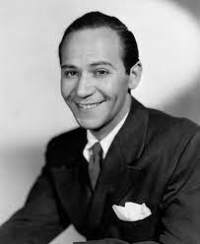
Frank Henry Loesser (/ˈlɛsər/; June 29, 1910 – July 28, 1969) was an American songwriter who wrote the music and lyrics for the Broadway musicals Guys and Dolls, How to Succeed in Business Without Really Trying, and others. He won separate Tony Awards for the music and lyrics in both shows as well as shared the Pulitzer Prize for Drama for the latter. He also wrote songs for over 60 Hollywood films and for Tin Pan Alley, many of which have become standards, and was nominated for five Academy Awards for best song, winning once for "Baby, It's Cold Outside".
Thirty Seconds To Mars

Thirty Seconds to Mars is an American rock band from Los Angeles, California, formed in 1998. The band consists of brothers Jared Leto and Shannon Leto. During the course of its existence, it has undergone various line-up changes.
Galya Bisengalieva

Galya Bisengalieva is a Kazakh-British violinist. Improvisor, collaborator and leader of the London Contemporary Orchestra based in London.Born in Almaty, Kazakhstan, Galya studied at the Royal Academy of Music and Royal College of Music. She has performed solo shows throughout Europe, USA, India, Turkey, Brazil and made her sell out debut in Teatro Col, Buenos Aires where Galya received the Revelation Award by the Music Critics Association of Argentina.Galya toured Brahm's Violin Concerto as part of There Will be Blood: Live and premiered Edmund Finnis' Shades Lengthen on BBC Radio 3.She has collaborated with Steve Reich, Laurie Spiegel, Suzanne Ciani, Terry Riley, Pauline Oliveros as well as commissioning and performing new works by Shiva Feshareki, Claire M Singer, Emilie Levienaise-Farrouch, Mica Levi and CHAINES.
Lionel Richie

Lionel Brockman Richie, Jr. (born June 20, 1949) is an Academy Award and Grammy award-winning American singer, songwriter, record producer, and occasional actor, who has sold more than 100 million records.
He released his self-titled debut in 1982. The album hit #3 on the music charts and sold over 4 million copies. His 1983 follow up album, Can't Slow Down, sold over twice as many copies and won the Grammy Award for the Album of the Year in 1984. His third album, Dancing on the Ceiling, which was released in 1986, spawned such hits as "Say You, Say Me", "Dancing on the Ceiling," and "Se La", but it also signified the end of his large commercial success.
In 2002, Richie's song "Running with the Night" was featured on the Rockstar North video game Grand Theft Auto: Vice City though the song was removed from later versions of the game. In 2004, he appeared on Canadian Idol as his songs were featured during a Canadian Idol week.
In November 2005, Lionel Richie performed with Kenny Rogers on a CMT Crossroads special. The show gave an informative insight into their friendship both in and out of the music world. Richie was also the headliner at a 2000 Fourth of July tribute concert with Fantasia Barrino at the Philadelphia Museum of Art. Richie released his eighth studio album entitled " Coming Home" on September 12, 2006. The first single of the album was "I Call It Love" and was premiered in July 2006, becoming his biggest hit in the U.S. in ten years. The album was an incredible success for Richie in the United States, peaking at #6. His adopted daughter Nicole Richie stars in the music video for this track.
On May 2, 2008, Lionel Richie was the 21st recipient of the George and Ira Gershwin Lifetime Achievement Award at UCLA's annual Spring Sing. In accepting the award, Richie said: "Forget about surviving 30 some odd years in the music business, Lionel Richie survived 27 years of Nicole Richie".
He released his self-titled debut in 1982. The album hit #3 on the music charts and sold over 4 million copies. His 1983 follow up album, Can't Slow Down, sold over twice as many copies and won the Grammy Award for the Album of the Year in 1984. His third album, Dancing on the Ceiling, which was released in 1986, spawned such hits as "Say You, Say Me", "Dancing on the Ceiling," and "Se La", but it also signified the end of his large commercial success.
In 2002, Richie's song "Running with the Night" was featured on the Rockstar North video game Grand Theft Auto: Vice City though the song was removed from later versions of the game. In 2004, he appeared on Canadian Idol as his songs were featured during a Canadian Idol week.
In November 2005, Lionel Richie performed with Kenny Rogers on a CMT Crossroads special. The show gave an informative insight into their friendship both in and out of the music world. Richie was also the headliner at a 2000 Fourth of July tribute concert with Fantasia Barrino at the Philadelphia Museum of Art. Richie released his eighth studio album entitled " Coming Home" on September 12, 2006. The first single of the album was "I Call It Love" and was premiered in July 2006, becoming his biggest hit in the U.S. in ten years. The album was an incredible success for Richie in the United States, peaking at #6. His adopted daughter Nicole Richie stars in the music video for this track.
On May 2, 2008, Lionel Richie was the 21st recipient of the George and Ira Gershwin Lifetime Achievement Award at UCLA's annual Spring Sing. In accepting the award, Richie said: "Forget about surviving 30 some odd years in the music business, Lionel Richie survived 27 years of Nicole Richie".
Carlos Gardel

Carlos Gardel (11 December 1890 – 24 June 1935) was a singer, songwriter and actor, and is perhaps the most prominent figure in the history of tango. The unerring musicality of Gardel's baritone voice and the dramatic phrasing of his lyrics made miniature masterpieces of his hundreds of three-minute tango recordings. Together with lyricist and long-time collaborator Alfredo Le Pera, Gardel wrote several classic tangos, most notably "Mi Buenos Aires querido", "Por una cabeza" and "El día que me quieras".
Gardel died in an airplane crash at the height of his career, becoming an archetypal tragic hero mourned throughout Latin America. For many, Gardel embodies the soul of the tango style. He is commonly referred to as "Carlitos", "El Zorzal" (The Song Thrush), "The King of Tango", "El Mago" (The Magician) and "El Mudo" (The Mute).
Gardel died in an airplane crash at the height of his career, becoming an archetypal tragic hero mourned throughout Latin America. For many, Gardel embodies the soul of the tango style. He is commonly referred to as "Carlitos", "El Zorzal" (The Song Thrush), "The King of Tango", "El Mago" (The Magician) and "El Mudo" (The Mute).
Muse

Muse are a British rock band formed in Teignmouth, Devon, United Kingdom in 1994 under the alias of Rocket Baby Dolls. The band comprises Matthew Bellamy (vocals, guitar and piano), Christopher Wolstenholme (bass guitar and backing vocals) and Dominic Howard (drums and percussion). Muse's style can be considered as a mixture of many musical genres, most notably alternative rock, classical music and electronica. Muse are known best for their energetic and visually dazzling live performances and on June 16th & 17th, 2007 became the first band to sell out the newly built Wembley Stadium in London. Muse have released four studio albums with their first, Showbiz, released in 1999, followed by Origin of Symmetry in 2001 and Absolution in 2003. The most recent, Black Holes & Revelations (2006), was also the most critically acclaimed, garnering the band a Mercury Prize nomination and a third place finish in the NME Albums of the Year list for 2006. Muse have won various awards throughout their career including 5 MTV Europe Music Awards, 5 Q Awards, 4 NME Awards and 2 Brit awards.
Rimsky-Korsakov
Nikolai Andreyevich Rimsky-Korsakov (Russian: Никола́й Андре́евич Ри́мский-Ко́рсаков, Nikolaj Andreevič Rimskij-Korsakov, Russian pronunciation: ) (18 March 1844, – 21 June 1908) was a Russian composer, and a member of the group of composers known as The Five. He was a master of orchestration. His best-known orchestral compositions—Capriccio Espagnol, the Russian Easter Festival Overture, and the symphonic suite Scheherazade—are considered staples of the classical music repertoire, along with suites and excerpts from some of his 15 operas. Scheherazade is an example of his frequent use of fairy tale and folk subjects.
Rimsky-Korsakov believed, as did fellow composer Mily Balakirev and critic Vladimir Stasov, in developing a nationalistic style of classical music. This style employed Russian folk song and lore along with exotic harmonic, melodic and rhythmic elements in a practice known as musical orientalism, and eschewed traditional Western compositional methods. However, Rimsky-Korsakov appreciated Western musical techniques after he became a professor of musical composition, harmony and orchestration at the Saint Petersburg Conservatory in 1871. He undertook a rigorous three-year program of self-education and became a master of Western methods, incorporating them alongside the influences of Mikhail Glinka and fellow members of The Five. His techniques of composition and orchestration were further enriched by his exposure to the works of Richard Wagner.
Rimsky-Korsakov believed, as did fellow composer Mily Balakirev and critic Vladimir Stasov, in developing a nationalistic style of classical music. This style employed Russian folk song and lore along with exotic harmonic, melodic and rhythmic elements in a practice known as musical orientalism, and eschewed traditional Western compositional methods. However, Rimsky-Korsakov appreciated Western musical techniques after he became a professor of musical composition, harmony and orchestration at the Saint Petersburg Conservatory in 1871. He undertook a rigorous three-year program of self-education and became a master of Western methods, incorporating them alongside the influences of Mikhail Glinka and fellow members of The Five. His techniques of composition and orchestration were further enriched by his exposure to the works of Richard Wagner.
Jeff Bowen

Jeff Bowen (born August 30, 1971, in Baltimore, Maryland) is an American composer, lyricist and actor. He is best known as one of the authors and stars of the Broadway musical . He is currently developing a television show for ABC with his collaborator Hunter Bell.
Bowen attended college at Stetson University in Deland, Florida. He currently resides in Brooklyn, New York with his life partner Michael Berresse.
Bowen attended college at Stetson University in Deland, Florida. He currently resides in Brooklyn, New York with his life partner Michael Berresse.
The Producers
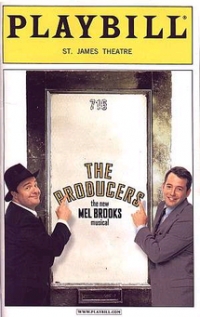
The Producers is a musical adapted by Mel Brooks and Thomas Meehan from Brooks' 1968 film of the same name, with lyrics written by Brooks and music composed by Brooks and arranged by Glen Kelly and Doug Besterman. As in the film, the story concerns two theatrical producers who scheme to get rich by overselling interests in a Broadway flop. The humor of the show is accessible to a wide range of audiences and draws on ridiculous accents, caricatures of homosexuals and Nazis, and many show business in-jokes.
The original production opened on Broadway on April 19, 2001, starring Nathan Lane and Matthew Broderick, and ran for 2,502 performances, winning a record-breaking 12 Tony Awards. It spawned a successful London production running for three years, national tours, many productions internationally and a 2005 film version.
The original production opened on Broadway on April 19, 2001, starring Nathan Lane and Matthew Broderick, and ran for 2,502 performances, winning a record-breaking 12 Tony Awards. It spawned a successful London production running for three years, national tours, many productions internationally and a 2005 film version.
Rocco Granata

Rocco Granata is an Italian-Belgian singer, songwriter, and accordionist. Granata was born in Figline Vegliaturo, Calabria, southern Italy; but his parents immigrated to Belgium when he was aged ten. Rocco's father was a coal miner, but Granata pursued music instead.
Enya
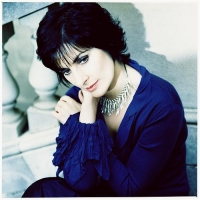
Enya (born Eithne Patricia Nà Bhraonáinon May 17, 1961, Gaoth Dobhair, County Donegal, Ireland), sometimes presented in the media as Enya Brennan, is an Irish singer, instrumentalist and composer. She is Ireland's best-selling solo artist and is officially the country's second biggest musical export (after U2). Her works have earned her four Grammy Awards and an Academy Award nomination, and she is also famous for performing in 10 different languages during her lengthy career. Enya is an approximate transcription of how Eithne is pronounced in her native Irish, in the Donegal dialect.
Final Fantasy VIII

Final Fantasy VIII (ファイナルファンタジーVIII Fainaru Fantajī Eito) is a role-playing video game developed and published by Square for the PlayStation console. Released in 1999, it is the eighth main installment in the Final Fantasy series. Set on an unnamed fantasy world with science fiction elements, the game follows a group of young mercenaries, led by Squall Leonhart, as they are drawn into a conflict sparked by the sorceress Edea. After defeating Edea, the protagonists learn that she was under the control of Ultimecia, a sorceress from the future who wishes to compress time. During the quest to defeat Ultimecia, Squall struggles with his role as leader and develops a romance with one of his comrades, Rinoa Heartilly.
Development began in 1997, during the English localization of Final Fantasy VII. The game builds on the visual changes brought to the series by Final Fantasy VII, including use 3D graphics and pre-rendered backgrounds, while also departing from many Final Fantasy traditions. It is the first Final Fantasy to use realistically proportioned characters consistently, feature a vocal piece as its theme music, forego the use of magic points for spellcasting, and deviate from the series' traditional means of increasing a character's power.
Final Fantasy VIII was mostly well received by critics, who praised its originality and visuals while criticizing some of its gameplay elements. It was voted the 22nd-best game of all time in 2006 by readers of the Japanese magazine Famitsu. The game was a commercial success; 13 weeks after its release, Final Fantasy VIII had earned more than US$50 million in sales, making it the fastest-selling Final Fantasy title until Final Fantasy XIII, a multi-platform release. It was later ported to Windows-based personal computers and became available on PlayStation Network as a PSone Classics title in 2009. As of December 2013, it has sold more than 8.5 million copies worldwide.
Development began in 1997, during the English localization of Final Fantasy VII. The game builds on the visual changes brought to the series by Final Fantasy VII, including use 3D graphics and pre-rendered backgrounds, while also departing from many Final Fantasy traditions. It is the first Final Fantasy to use realistically proportioned characters consistently, feature a vocal piece as its theme music, forego the use of magic points for spellcasting, and deviate from the series' traditional means of increasing a character's power.
Final Fantasy VIII was mostly well received by critics, who praised its originality and visuals while criticizing some of its gameplay elements. It was voted the 22nd-best game of all time in 2006 by readers of the Japanese magazine Famitsu. The game was a commercial success; 13 weeks after its release, Final Fantasy VIII had earned more than US$50 million in sales, making it the fastest-selling Final Fantasy title until Final Fantasy XIII, a multi-platform release. It was later ported to Windows-based personal computers and became available on PlayStation Network as a PSone Classics title in 2009. As of December 2013, it has sold more than 8.5 million copies worldwide.
Schubert

Franz Peter Schubert (January 31, 1797 – November 19, 1828) was an Austrian composer. He wrote some 600 lieder, nine symphonies (including the famous "Unfinished Symphony"), liturgical music, operas, and a large body of chamber and solo piano music. He is particularly noted for his original melodic and harmonic writing.
While Schubert had a close circle of friends and associates who admired his work (including his teacher Antonio Salieri, and the prominent singer Johann Michael Vogl), wider appreciation of his music during his lifetime was limited at best. He was never able to secure adequate permanent employment, and for most of his career he relied on the support of friends and family. Interest in Schubert's work increased dramatically in the decades following his death and he is now widely considered to be one of the greatest composers in the Western tradition.
While he was clearly influenced by the Classical sonata forms of Beethoven and Mozart (his early works, among them notably the 5th Symphony, are particularly Mozartean), his formal structures and his developments tend to give the impression more of melodic development than of harmonic drama. This combination of Classical form and long-breathed Romantic melody sometimes lends them a discursive style: his 9th Symphony was described by Robert Schumann as running to "heavenly lengths". His harmonic innovations include movements in which the first section ends in the key of the subdominant rather than the dominant (as in the last movement of the Trout Quintet). Schubert's practice here was a forerunner of the common Romantic technique of relaxing, rather than raising, tension in the middle of a movement, with final resolution postponed to the very end.
While Schubert had a close circle of friends and associates who admired his work (including his teacher Antonio Salieri, and the prominent singer Johann Michael Vogl), wider appreciation of his music during his lifetime was limited at best. He was never able to secure adequate permanent employment, and for most of his career he relied on the support of friends and family. Interest in Schubert's work increased dramatically in the decades following his death and he is now widely considered to be one of the greatest composers in the Western tradition.
While he was clearly influenced by the Classical sonata forms of Beethoven and Mozart (his early works, among them notably the 5th Symphony, are particularly Mozartean), his formal structures and his developments tend to give the impression more of melodic development than of harmonic drama. This combination of Classical form and long-breathed Romantic melody sometimes lends them a discursive style: his 9th Symphony was described by Robert Schumann as running to "heavenly lengths". His harmonic innovations include movements in which the first section ends in the key of the subdominant rather than the dominant (as in the last movement of the Trout Quintet). Schubert's practice here was a forerunner of the common Romantic technique of relaxing, rather than raising, tension in the middle of a movement, with final resolution postponed to the very end.
Felix Mendelssohn

Jakob Ludwig Felix Mendelssohn Bartholdy, born, and generally known in English-speaking countries, as Felix Mendelssohn (February 3, 1809 – November 4, 1847) was a German composer, pianist, organist and conductor of the early Romantic period.
The grandson of the philosopher Moses Mendelssohn, he was born into a notable Jewish family, although he himself was brought up initially without religion, and later as a Lutheran. He was recognized early as a musical prodigy, but his parents were cautious and did not seek to capitalise on his abilities. Indeed his father was disinclined to allow Felix to follow a musical career until it became clear that he intended to seriously dedicate himself to it.
Early success in Germany was followed by travel throughout Europe; Mendelssohn was particularly well received in England as a composer, conductor and soloist, and his ten visits there, during which many of his major works were premiered, form an important part of his adult career. His essentially conservative musical tastes however set him apart from many of his more adventurous musical contemporaries such as Liszt, Wagner and Berlioz. The Conservatory he founded at Leipzig became a bastion of this anti-radical outlook.
Mendelssohn's work includes symphonies, concerti, oratorios, piano and chamber music. He also had an important role in the revival of interest in the music of Johann Sebastian Bach. After a long period of relative denigration due to changing musical tastes and antisemitism in the late 19th and early 20th centuries, his creative originality is now being recognized and re-evaluated. He is now among the most popular composers of the Romantic era.
The grandson of the philosopher Moses Mendelssohn, he was born into a notable Jewish family, although he himself was brought up initially without religion, and later as a Lutheran. He was recognized early as a musical prodigy, but his parents were cautious and did not seek to capitalise on his abilities. Indeed his father was disinclined to allow Felix to follow a musical career until it became clear that he intended to seriously dedicate himself to it.
Early success in Germany was followed by travel throughout Europe; Mendelssohn was particularly well received in England as a composer, conductor and soloist, and his ten visits there, during which many of his major works were premiered, form an important part of his adult career. His essentially conservative musical tastes however set him apart from many of his more adventurous musical contemporaries such as Liszt, Wagner and Berlioz. The Conservatory he founded at Leipzig became a bastion of this anti-radical outlook.
Mendelssohn's work includes symphonies, concerti, oratorios, piano and chamber music. He also had an important role in the revival of interest in the music of Johann Sebastian Bach. After a long period of relative denigration due to changing musical tastes and antisemitism in the late 19th and early 20th centuries, his creative originality is now being recognized and re-evaluated. He is now among the most popular composers of the Romantic era.
Otis Redding
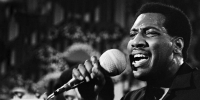
tis Ray Redding Jr. (September 9, 1941 – December 10, 1967) was an American singer and songwriter. He is considered one of the greatest singers in the history of American popular music and a seminal artist in soul music and rhythm and blues. Redding's style of singing gained inspiration from the gospel music that preceded the genre. His singing style influenced many other soul artists of the 1960s.
Egberto Gismonti
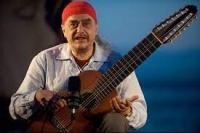
Egberto Amin Gismonti (born December 5, 1947 in Carmo, state of Rio de Janeiro) is a Brazilian composer, guitarist and pianist.Gismonti was born in the small city of Carmo, state of Rio de Janeiro, Brazil, into a musical family. His mother was from Sicily and his father was from Beirut, Lebanon. At the age of six, he started studying the piano at the Brazilian Conservatory of Music. After studying the classical repertoire in Brazil for fifteen years, he went to Paris to delve into modern music. He studied with Nadia Boulanger (1887–1979), after acceptance as a student by the composer Jean Barraqué, a student of Anton Webern and Schoenberg. Boulanger encouraged Gismonti to write the collective Brazilian experience into his music.
Bleach

Ichigo Kurosaki never asked for the ability to see ghosts -- he was born with the gift. When his family is attacked by a Hollow -- a malevolent lost soul -- Ichigo becomes a Soul Reaper, dedicating his life to protecting the innocent and helping the tortured spirits themselves find peace.
Norah Jones
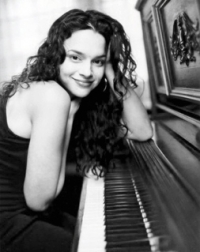
Norah Jones (born Geethali Norah Jones Shankar on March 30, 1979) is an American singer-songwriter, pianist, keyboardist, guitarist, and occasional actress of Anglo-American and Bengali descent. She is the daughter of famed sitar virtuoso Ravi Shankar and half-sister of sitarist Anoushka Shankar.
Jones' career was launched with her 2002 debut album Come Away with Me, an adult contemporary pop/vocal jazz album with a sensual, plaintive soul/folk/country tinge, that sold over twenty million copies worldwide and received five Grammy Awards, with Jones winning "Best New Artist". Her second album, Feels like Home, was released in 2004, clocking more than a million sales in the first week of U.S. release. In 2007, she released her third album, Not Too Late, which debuted at number one on the world charts. She has become one of the most successful recording artists of the decade, racking up sales of more than 16 million records in the US and 39 million records worldwide.
Jones' career was launched with her 2002 debut album Come Away with Me, an adult contemporary pop/vocal jazz album with a sensual, plaintive soul/folk/country tinge, that sold over twenty million copies worldwide and received five Grammy Awards, with Jones winning "Best New Artist". Her second album, Feels like Home, was released in 2004, clocking more than a million sales in the first week of U.S. release. In 2007, she released her third album, Not Too Late, which debuted at number one on the world charts. She has become one of the most successful recording artists of the decade, racking up sales of more than 16 million records in the US and 39 million records worldwide.
Yiruma

Yiruma (born February 15 1978, Seoul, Korea) is a South Korean piano music composer. He is married to Son Hye-im.
Yiruma is well-known throughout the world, and his albums are sold all over Asia, as well as the United States and Europe. His most famous pieces are "Kiss the Rain", and also "River Flows in You". These pieces are widely mistaken for being associated with the movie Twilight. Although he formerly held dual citizenship as a citizen of the United Kingdom and South Korea, in July 2006 he gave up his British citizenship and entered the Republic of Korea Navy to begin his military service, which is compulsory for all male South Koreans. He has lived in Osaka, Japan for 5 years to promote album sales before giving up his dual citizenship.
Yiruma is well-known throughout the world, and his albums are sold all over Asia, as well as the United States and Europe. His most famous pieces are "Kiss the Rain", and also "River Flows in You". These pieces are widely mistaken for being associated with the movie Twilight. Although he formerly held dual citizenship as a citizen of the United Kingdom and South Korea, in July 2006 he gave up his British citizenship and entered the Republic of Korea Navy to begin his military service, which is compulsory for all male South Koreans. He has lived in Osaka, Japan for 5 years to promote album sales before giving up his dual citizenship.
Beyonce

Beyoncé Giselle Knowles (born September 4, 1981), commonly known as Beyoncé, is an American R&B singer-songwriter, record producer, and actress. Born and raised in Houston, Texas, she enrolled in various performing arts schools, and was first exposed to singing and dancing competitions as a child. Knowles rose to fame in the late 1990s as the lead singer of R&B girl group Destiny's Child, the best-selling girl group of all time.
In June 2003, after a series of commercial successes with the group, Beyoncé released her debut solo album, Dangerously in Love. The album became one of the most successful albums of that year, spawning the number-one singles "Crazy in Love" and "Baby Boy", and earned Knowles five Grammy Awards in a single night in 2004. The formal disbandment of Destiny's Child in 2005 facilitated her continued success as a solo artist. She released her second album, B'Day in 2006, which spawned the UK number-one singles "Déjà Vu" and "Beautiful Liar", as well as the worldwide hit, "Irreplaceable". Knowles has sold 15 million albums and singles worldwide.
The success of her solo albums has established her as one of the most marketable artists in the industry. However, she has also added acting and endorsement deals to her repertoire. In 2006, she starred alongside Steve Martin and Kevin Kline in the comedy The Pink Panther, and that same year, scored the main role in the film adaptation of the 1981 Broadway musical Dreamgirls, which earned her a Golden Globe nomination. Knowles launched her family's fashion line House of Deréon in 2004, and among her many lucrative commercial deals are Pepsi, Tommy Hilfiger, and L'Oréal. Knowles has been with long-time boyfriend Jay-Z since 2002, though they have been discreet about their relationship. After much speculation, they married on April 4, 2008.
In June 2003, after a series of commercial successes with the group, Beyoncé released her debut solo album, Dangerously in Love. The album became one of the most successful albums of that year, spawning the number-one singles "Crazy in Love" and "Baby Boy", and earned Knowles five Grammy Awards in a single night in 2004. The formal disbandment of Destiny's Child in 2005 facilitated her continued success as a solo artist. She released her second album, B'Day in 2006, which spawned the UK number-one singles "Déjà Vu" and "Beautiful Liar", as well as the worldwide hit, "Irreplaceable". Knowles has sold 15 million albums and singles worldwide.
The success of her solo albums has established her as one of the most marketable artists in the industry. However, she has also added acting and endorsement deals to her repertoire. In 2006, she starred alongside Steve Martin and Kevin Kline in the comedy The Pink Panther, and that same year, scored the main role in the film adaptation of the 1981 Broadway musical Dreamgirls, which earned her a Golden Globe nomination. Knowles launched her family's fashion line House of Deréon in 2004, and among her many lucrative commercial deals are Pepsi, Tommy Hilfiger, and L'Oréal. Knowles has been with long-time boyfriend Jay-Z since 2002, though they have been discreet about their relationship. After much speculation, they married on April 4, 2008.
The Archies
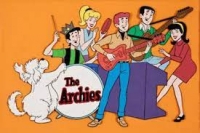
The Archies is an American fictional band that featured in the animated TV series The Archie Show. In the context of the series, the band was founded by vocalist/guitarist Archie Andrews, bassist Reggie Mantle, drummer Forsythe "Jughead" Jones, vocalist/keyboardist Veronica Lodge and vocalist/percussionist Betty Cooper. In the cartoons, Veronica is shown playing a large keyboard instrument styled after the X-66, a then-current top-of-the-line organ made by the Hammond Organ Company.
Francis Poulenc

Francis Jean Marcel Poulenc (French pronunciation: (7 January 1899 - 30 January 1963) was a French composer and a member of the French group Les Six. He composed music in genres including art song, solo piano music, chamber music, oratorio, opera, ballet music, and orchestral music. Critic Claude Rostand, in a July 1950 Paris-Presse article, described Poulenc as "half monk, half delinquent" ("le moine et le voyou"), a tag that was to be attached to his name for the rest of his career.
Bat Boy
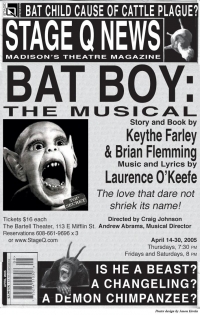
Bat Boy is a fictional creature who made several appearances in the defunct supermarket tabloid Weekly World News. The Weekly World News published patently fabricated stories which were purported to be factual. Within the pages of the paper, Bat Boy is described as a creature who is 'half human and half bat'. His pursuers, according to Weekly World News are scientists and United States government officials; he is frequently captured, then later makes a daring escape.
Bat Boy was created by former Weekly World News Editor Dick Kulpa. He debuted as a cover story on June 23, 1992. The original front-page photo of Bat Boy, showing his grotesque screaming face, was the second-best selling issue in the tabloid's history, and he has since evolved into a pop-culture icon. The story of Bat Boy was turned into an acclaimed off-Broadway musical, Bat Boy: The Musical.
Bat Boy was created by former Weekly World News Editor Dick Kulpa. He debuted as a cover story on June 23, 1992. The original front-page photo of Bat Boy, showing his grotesque screaming face, was the second-best selling issue in the tabloid's history, and he has since evolved into a pop-culture icon. The story of Bat Boy was turned into an acclaimed off-Broadway musical, Bat Boy: The Musical.
Beethoven

Ludwig van Beethoven (16 December 1770 - 26 March 1827) was a German composer and pianist. He was a crucial figure in the transitional period between the Classical and Romantic eras in Western classical music, and remains one of the most respected and influential composers of all time.
Born in Bonn, then in the Electorate of Cologne (now in modern-day Germany), he moved to Vienna in his early twenties and settled there, studying with Joseph Haydn and quickly gaining a reputation as a virtuoso pianist. Beethoven's hearing gradually deteriorated beginning in his twenties, yet he continued to compose masterpieces, and to conduct and perform, even after he was completely deaf.
Born in Bonn, then in the Electorate of Cologne (now in modern-day Germany), he moved to Vienna in his early twenties and settled there, studying with Joseph Haydn and quickly gaining a reputation as a virtuoso pianist. Beethoven's hearing gradually deteriorated beginning in his twenties, yet he continued to compose masterpieces, and to conduct and perform, even after he was completely deaf.
Nat King Cole
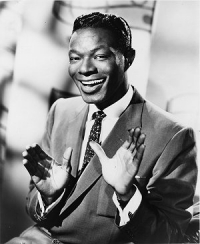
Nathaniel Adams Coles (March 17, 1919 â February 15, 1965), known professionally as Nat King Cole, was an American musician.
Cole first came to prominence as a leading jazz pianist, then switched his emphasis to singing, becoming one of the most popular and best known vocalists of all time.
Cole's first mainstream vocal hit was his 1943 recording of one of his compositions, "Straighten Up and Fly Right", based on a black folk tale that his father had used as a theme for a sermon. Johnny Mercer invited him to record it for the fledgling Capitol Records label. It sold over 500,000 copies, and proved that folk-based material could appeal to a wide audience. Although Nat would never be considered a rocker, the song can be seen as anticipating the first rock and roll records. Indeed, Bo Diddley, who performed similar transformations of folk material, counted Cole as an influence.
Beginning in the late 1940s, Cole began recording and performing more pop-oriented material for mainstream audiences, often accompanied by a string orchestra. His stature as a popular icon was cemented during this period by hits such as "The Christmas Song" (Cole recorded the tune four times: June 14, 1946 as a pure Trio recording; August 19, 1946 with an added string section; August 24, 1953; and again in 1961 for the double album, The Nat King Cole Story. This final version, recorded in stereo, is the one most often heard today.), "Nature Boy" (1948), "Mona Lisa" (1950), "Too Young" (the #1 song in 1951), and his signature tune "Unforgettable" (1951). While this shift to pop music led some jazz critics and fans to accuse Cole of selling out, he never totally abandoned his jazz roots; as late as 1956, for instance, he recorded an all-jazz album, After Midnight.
His last album, L-O-V-E, was recorded in early December 1964 â just a few days before entering the hospital for lung cancer treatment â and released just prior to his death; it peaked at #4 on the Billboard Albums chart in the spring of 1965. A Best Of album went gold in 1968. His 1957 recording of "When I Fall In Love" reached #4 in the UK charts in 1987.
Cole first came to prominence as a leading jazz pianist, then switched his emphasis to singing, becoming one of the most popular and best known vocalists of all time.
Cole's first mainstream vocal hit was his 1943 recording of one of his compositions, "Straighten Up and Fly Right", based on a black folk tale that his father had used as a theme for a sermon. Johnny Mercer invited him to record it for the fledgling Capitol Records label. It sold over 500,000 copies, and proved that folk-based material could appeal to a wide audience. Although Nat would never be considered a rocker, the song can be seen as anticipating the first rock and roll records. Indeed, Bo Diddley, who performed similar transformations of folk material, counted Cole as an influence.
Beginning in the late 1940s, Cole began recording and performing more pop-oriented material for mainstream audiences, often accompanied by a string orchestra. His stature as a popular icon was cemented during this period by hits such as "The Christmas Song" (Cole recorded the tune four times: June 14, 1946 as a pure Trio recording; August 19, 1946 with an added string section; August 24, 1953; and again in 1961 for the double album, The Nat King Cole Story. This final version, recorded in stereo, is the one most often heard today.), "Nature Boy" (1948), "Mona Lisa" (1950), "Too Young" (the #1 song in 1951), and his signature tune "Unforgettable" (1951). While this shift to pop music led some jazz critics and fans to accuse Cole of selling out, he never totally abandoned his jazz roots; as late as 1956, for instance, he recorded an all-jazz album, After Midnight.
His last album, L-O-V-E, was recorded in early December 1964 â just a few days before entering the hospital for lung cancer treatment â and released just prior to his death; it peaked at #4 on the Billboard Albums chart in the spring of 1965. A Best Of album went gold in 1968. His 1957 recording of "When I Fall In Love" reached #4 in the UK charts in 1987.
Seal
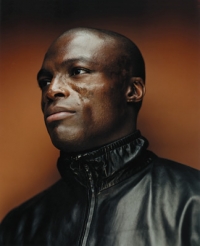
Seal Henry Olusegun Olumide Adelo Samuel (born February 19, 1963 in Paddington, London) is a British soul singer and songwriter. His name Olusegun means "God is victorious". Known professionally by his first name, Seal is known for his numerous international hits and his marriage to supermodel Heidi Klum.
Seal first came to public attention as vocalist on the Adamski single "Killer" in 1990. The single eventually reached number one in 1990 in the UK. Seal subsequently signed to ZTT Records and released his debut album (produced by Trevor Horn), self-titled Seal, in 1991. Two versions of the album are known to be in circulation: the original "premix" version and a second, more common version with an updated mix. This is attributed to the demand for a produced single rushing the final album edit, and as Seal puts it, his and producer Horn's "inability to let go."
System was released in the UK on November 12, 2007 and in the U.S. on November 13, 2007. Seal describes the album as more dance-oriented, apparently a return to the roots of his first album. On the track titled "Wedding Day", Seal sings a duet with his wife, Heidi Klum. The album's first single, "Amazing", was released on September 25, 2007, and was nominated for the "Best Male Pop Vocal Performance" Grammy at the 2007 50th Annual Grammy Awards.
Seal first came to public attention as vocalist on the Adamski single "Killer" in 1990. The single eventually reached number one in 1990 in the UK. Seal subsequently signed to ZTT Records and released his debut album (produced by Trevor Horn), self-titled Seal, in 1991. Two versions of the album are known to be in circulation: the original "premix" version and a second, more common version with an updated mix. This is attributed to the demand for a produced single rushing the final album edit, and as Seal puts it, his and producer Horn's "inability to let go."
System was released in the UK on November 12, 2007 and in the U.S. on November 13, 2007. Seal describes the album as more dance-oriented, apparently a return to the roots of his first album. On the track titled "Wedding Day", Seal sings a duet with his wife, Heidi Klum. The album's first single, "Amazing", was released on September 25, 2007, and was nominated for the "Best Male Pop Vocal Performance" Grammy at the 2007 50th Annual Grammy Awards.
Charles Mingus

Charles Mingus Jr. (April 22, 1922 – January 5, 1979) was an American jazz double bassist, pianist, composer and bandleader. A major proponent of collective improvisation, he is considered to be one of the greatest jazz musicians and composers in history, with a career spanning three decades and collaborations with other jazz legends such as Louis Armstrong, Duke Ellington, Charlie Parker, Dizzy Gillespie, Dannie Richmond, and Herbie Hancock.
Mingus' compositions continue to be played by contemporary musicians ranging from the repertory bands Mingus Big Band, Mingus Dynasty, and Mingus Orchestra, to the high school students who play the charts and compete in the Charles Mingus High School Competition. In 1993, the Library of Congress acquired Mingus's collected papers—including scores, sound recordings, correspondence and photos—in what they described as "the most important acquisition of a manuscript collection relating to jazz in the Library's history"
Mingus' compositions continue to be played by contemporary musicians ranging from the repertory bands Mingus Big Band, Mingus Dynasty, and Mingus Orchestra, to the high school students who play the charts and compete in the Charles Mingus High School Competition. In 1993, the Library of Congress acquired Mingus's collected papers—including scores, sound recordings, correspondence and photos—in what they described as "the most important acquisition of a manuscript collection relating to jazz in the Library's history"
Lew Pollack
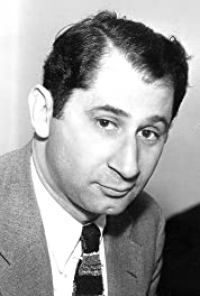
Lew Pollack (June 16, 1895 – January 18, 1946) was an American song composer and musician active during the 1920s and the 1930s.Pollack was born in New York City where he went to DeWitt Clinton High School and was active as a boy soprano in a choral group headed by Walter Damrosch.Starting out as a singer and pianist in vaudeville acts he began writing theme music for silent films before collaborating with others on popular songs. In 1914, he wrote "That's a Plenty", a rag that became an enduring Dixieland standard.
Vanessa Carlton
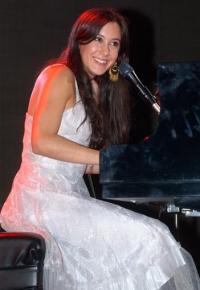
Vanessa Lee Carlton (born August 16, 1980) is an American soft rock/Piano pop singer, songwriter, and pianist best known for the Billboard top five, Grammy-nominated single "A Thousand Miles" from her debut album, Be Not Nobody which was released April 30, 2002, and certified platinum in the U.S.
Her music, along with that of her contemporary Michelle Branch to whom she is sometimes compared, has had an influence on female solo pop singer-songwriters in the 21st century, including Kate Voegele, Lights, Sara Bareilles (another piano pop artist), Colbie Caillat and Tristan Prettyman.
Carlton's second album, Harmonium (released November 9, 2004), debuted at number 33 on the U.S. Billboard 200 and had sold 179,000 copies as of February 2006, with the single "White Houses," peaking at 86 in the U.S. Billboard Hot 100. She subsequently parted company from her record label A&M, though she still holds a dedicated fanbase.
Her third album, Heroes and Thieves, was released on October 9, 2007 by the The Inc./Universal Motown record labels.
Her music, along with that of her contemporary Michelle Branch to whom she is sometimes compared, has had an influence on female solo pop singer-songwriters in the 21st century, including Kate Voegele, Lights, Sara Bareilles (another piano pop artist), Colbie Caillat and Tristan Prettyman.
Carlton's second album, Harmonium (released November 9, 2004), debuted at number 33 on the U.S. Billboard 200 and had sold 179,000 copies as of February 2006, with the single "White Houses," peaking at 86 in the U.S. Billboard Hot 100. She subsequently parted company from her record label A&M, though she still holds a dedicated fanbase.
Her third album, Heroes and Thieves, was released on October 9, 2007 by the The Inc./Universal Motown record labels.
Andrew Lloyd Webber

Andrew Lloyd Webber, Baron Lloyd-Webber (born 22 March 1948) is an English composer of musical theatre, the elder son of organist William Lloyd Webber and brother of the cellist Julian Lloyd Webber. Lloyd Webber started composing at the age of six, and published his first piece at the age of nine.
Lloyd Webber has achieved great popular success, with several musicals that have run for more than a decade both in the West End and on Broadway. He has composed 13 musicals, a song cycle, a set of variations, two film scores, and a Latin Requiem Mass. He has also gained a number of honours, including a knighthood in 1992, followed by a peerage from the British Government for services to Music, seven Tony Awards (and 40 nominations), three Grammy Awards (with an additional 60 nominations), an Academy Award (two other nominations), seven Olivier Awards (with 100 nominations), a Golden Globe, and the Kennedy Center Honors in 2006. Several of his songs, notably "The Music of the Night" from The Phantom of the Opera, "I Don't Know How to Love Him" from Jesus Christ Superstar, "Don't Cry for Me, Argentina" from Evita, "Any Dream Will Do" from Joseph and the Amazing Technicolor Dreamcoat and "Memory" from Cats have been widely recorded and were hits outside of their parent musicals. His company, the Really Useful Group, is one of the largest theatre operators in London.
Producers in several parts of the UK have staged productions, including national tours, of Lloyd Webber's musicals under licence from the Really Useful Group. According to britishhitsongwriters.com, he is the one hundredth most successful songwriter in U.K. singles chart history, based on weeks that his compositions have spent on the chart.
Lloyd Webber has achieved great popular success, with several musicals that have run for more than a decade both in the West End and on Broadway. He has composed 13 musicals, a song cycle, a set of variations, two film scores, and a Latin Requiem Mass. He has also gained a number of honours, including a knighthood in 1992, followed by a peerage from the British Government for services to Music, seven Tony Awards (and 40 nominations), three Grammy Awards (with an additional 60 nominations), an Academy Award (two other nominations), seven Olivier Awards (with 100 nominations), a Golden Globe, and the Kennedy Center Honors in 2006. Several of his songs, notably "The Music of the Night" from The Phantom of the Opera, "I Don't Know How to Love Him" from Jesus Christ Superstar, "Don't Cry for Me, Argentina" from Evita, "Any Dream Will Do" from Joseph and the Amazing Technicolor Dreamcoat and "Memory" from Cats have been widely recorded and were hits outside of their parent musicals. His company, the Really Useful Group, is one of the largest theatre operators in London.
Producers in several parts of the UK have staged productions, including national tours, of Lloyd Webber's musicals under licence from the Really Useful Group. According to britishhitsongwriters.com, he is the one hundredth most successful songwriter in U.K. singles chart history, based on weeks that his compositions have spent on the chart.
Alan Silverstri
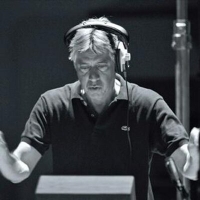
Alan Anthony Silvestri is an American composer and conductor known for his film and television scores. He is best known for his frequent collaboration with Robert Zemeckis, composing for such major hit films as the Back to the Future trilogy, Who Framed Roger Rabbit, Cast Away, and Forrest Gump
Craig Armstrong
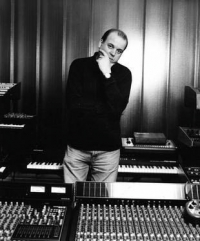
Craig Armstrong OBE (born 1959) is a Scottish composer of modern orchestral music, electronica and film scores.
Armstrong was born in Glasgow, Scotland in 1959. He studied musical composition, violin and piano at the Royal Academy of Music from 1977 to 1981, where he was awarded the Charles Lucas prize and the Harvey Lohr scholarship for composition. He was also awarded the FTCL Fellowship in composition, and won the GLAA Young Jazz Musician of the Year in 1982. Upon completing his studies, Armstrong served as music and dance specialist at the Strathclyde Regional Council in 1984.
Armstrong's score for Baz Luhrmann’s groundbreaking musical Moulin Rouge! earned him AFI’s Composer of the Year, a Golden Globe for Best Original Score of the Year and a BAFTA for Achievement in Film Music. His score for Phillip Noyce’s The Quiet American garnered him the Ivor Novello Award for Best Original Film Score. His other feature film scoring credits include the Oliver Stone drama World Trade Center; the Oscar®-winning bio-pic Ray for which Armstrong was awarded a Grammy for Best Original Score; and the worldwide ensemble comedy smash Love Actually. His scores can also be heard in The Magdalene Sisters, Kiss of the Dragon, The Bone Collector, The Clearing, Plunkett & Macleane, Best Laid Plans, Orphans, Elizabeth: The Golden Age and most recently Louis Leterrier’s Incredible Hulk. His score to William Shakespeare’s Romeo + Juliet (again with Baz Luhrmann) also earned him a BAFTA for Achievement in Film Music and an Ivor Novello.
Armstrong was born in Glasgow, Scotland in 1959. He studied musical composition, violin and piano at the Royal Academy of Music from 1977 to 1981, where he was awarded the Charles Lucas prize and the Harvey Lohr scholarship for composition. He was also awarded the FTCL Fellowship in composition, and won the GLAA Young Jazz Musician of the Year in 1982. Upon completing his studies, Armstrong served as music and dance specialist at the Strathclyde Regional Council in 1984.
Armstrong's score for Baz Luhrmann’s groundbreaking musical Moulin Rouge! earned him AFI’s Composer of the Year, a Golden Globe for Best Original Score of the Year and a BAFTA for Achievement in Film Music. His score for Phillip Noyce’s The Quiet American garnered him the Ivor Novello Award for Best Original Film Score. His other feature film scoring credits include the Oliver Stone drama World Trade Center; the Oscar®-winning bio-pic Ray for which Armstrong was awarded a Grammy for Best Original Score; and the worldwide ensemble comedy smash Love Actually. His scores can also be heard in The Magdalene Sisters, Kiss of the Dragon, The Bone Collector, The Clearing, Plunkett & Macleane, Best Laid Plans, Orphans, Elizabeth: The Golden Age and most recently Louis Leterrier’s Incredible Hulk. His score to William Shakespeare’s Romeo + Juliet (again with Baz Luhrmann) also earned him a BAFTA for Achievement in Film Music and an Ivor Novello.
Doctor Who

Doctor Who is a British science fiction television series produced by the BBC since 1963. Sequence; It chronicles the adventures of a Time Lord, a time-traveling humanoid extraterrestrial creature known as the Doctor. The Doctor explores the universe in a conscious, time-traveling spaceship called the TARDIS, which on the outside looks like a 1950s police station. Together with his companions, he explores space and time, solves problems, confronts creatures and prevents interventions in history.
Carlos Careqa
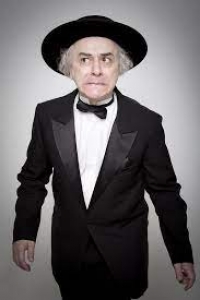
A promising artist who has been militating in the vanguard of the Brazilian pop, Carlos Careqa has had his songs recorded by Rita Ribeiro and Vânia Abreu, among others. In São Paulo, he wrote several soundtracks for plays and films, along with his musical performances in the city's nightclubs. In the '90s, he also performed in Genève and Berlin. Careqa had his first album, Os Homens São Todos Iguais, released in 1993, with "Acho" receiving good airing in São Paulo. Música Para Final de Século (1999) had "Ser Igual É Legal" included in the soundtrack of a prime time soap opera.
Sergio Mendes

Sérgio Santos Mendes (Brazilian Portuguese: ; born February 11, 1941) is a Brazilian musician. He has over 55 releases, and plays bossa nova heavily crossed with jazz and funk. He was nominated for an Oscar for Best Original Song in 2012 as co-writer of the song "Real in Rio" from the animated film Rio. Mendes is a unique example of a Brazilian musician primarily known in the United States, where his albums were recorded and where most of his touring took place.Mendes is married to Gracinha Leporace, who has performed with him since the early 1970s. Mendes has also collaborated with many artists through the years, including The Black Eyed Peas, with whom he re-recorded in 2006 a version of his breakthrough hit "Mas que Nada".
Sarah McLachlan

Sarah Ann McLachlan, OC, OBC (born January 28, 1968) is a Grammy-winning Canadian musician, singer and songwriter.
She is known for the emotional sound of her ballads. Some of her most popular songs include "Angel", "Building a Mystery", "Adia", "Possession", "Fallen", "I Will Remember You", and "World on Fire". As of 2006, she has sold over 40 million albums worldwide. Her best-selling album to date is Surfacing, for which she won eight Juno Awards and three Grammy Awards. In addition to her personal artistic efforts, she founded the Lilith Fair tour, which showcased female musicians in the late 1990s.
Her 1991 album, Solace, was her mainstream breakthrough in Canada, spawning the hit singles "The Path of Thorns (Terms)" and "Into the Fire". Solace also marked the beginning of her partnership with Pierre Marchand. Marchand and McLachlan have been collaborators ever since, with Marchand producing all of McLachlan's albums and occasionally co-writing songs.
1994's Fumbling Towards Ecstasy was an immediate smash hit in Canada. From her Nettwerk connection, her piano version of the song "Possession" was included on the first Due South soundtrack in 1996. Over the next two years, Fumbling Towards Ecstasy quietly became McLachlan's international breakthrough as well, scaling the charts in a number of countries.
Following the success from Fumbling Towards Ecstasy, McLachlan returned in 1997 with Surfacing, her best selling album to date. Earning her two Grammy awards and four Junos, the album has since sold over 11 million copies worldwide and brought her much international success
She is known for the emotional sound of her ballads. Some of her most popular songs include "Angel", "Building a Mystery", "Adia", "Possession", "Fallen", "I Will Remember You", and "World on Fire". As of 2006, she has sold over 40 million albums worldwide. Her best-selling album to date is Surfacing, for which she won eight Juno Awards and three Grammy Awards. In addition to her personal artistic efforts, she founded the Lilith Fair tour, which showcased female musicians in the late 1990s.
Her 1991 album, Solace, was her mainstream breakthrough in Canada, spawning the hit singles "The Path of Thorns (Terms)" and "Into the Fire". Solace also marked the beginning of her partnership with Pierre Marchand. Marchand and McLachlan have been collaborators ever since, with Marchand producing all of McLachlan's albums and occasionally co-writing songs.
1994's Fumbling Towards Ecstasy was an immediate smash hit in Canada. From her Nettwerk connection, her piano version of the song "Possession" was included on the first Due South soundtrack in 1996. Over the next two years, Fumbling Towards Ecstasy quietly became McLachlan's international breakthrough as well, scaling the charts in a number of countries.
Following the success from Fumbling Towards Ecstasy, McLachlan returned in 1997 with Surfacing, her best selling album to date. Earning her two Grammy awards and four Junos, the album has since sold over 11 million copies worldwide and brought her much international success
 Sheet Music Max is a site for those who wants to access popular sheet music easily,
letting them download the sheet music for free for trial purposes.
It's completely free to download and try the listed sheet music, but you have to delete the files after 24 hours of trial.
Don't forget, if you like the piece of music you have just learned playing,
treat the artist with respect, and go buy the original sheet music.
Sheet Music Max is a site for those who wants to access popular sheet music easily,
letting them download the sheet music for free for trial purposes.
It's completely free to download and try the listed sheet music, but you have to delete the files after 24 hours of trial.
Don't forget, if you like the piece of music you have just learned playing,
treat the artist with respect, and go buy the original sheet music.
